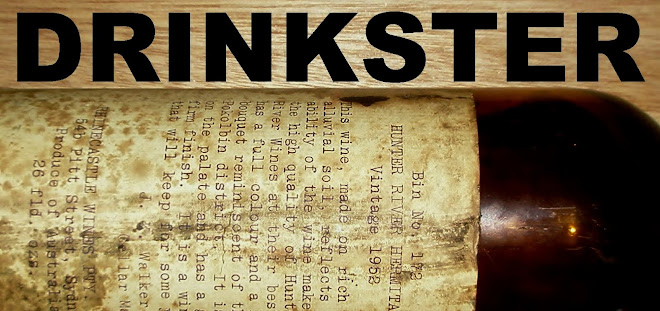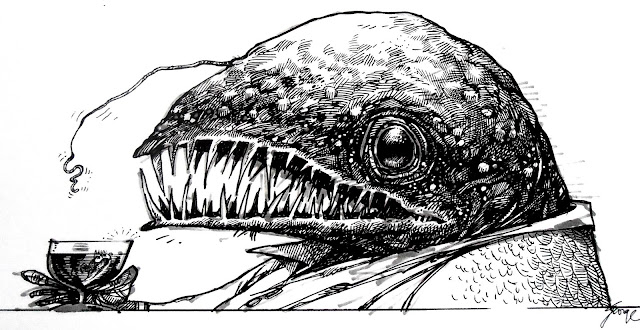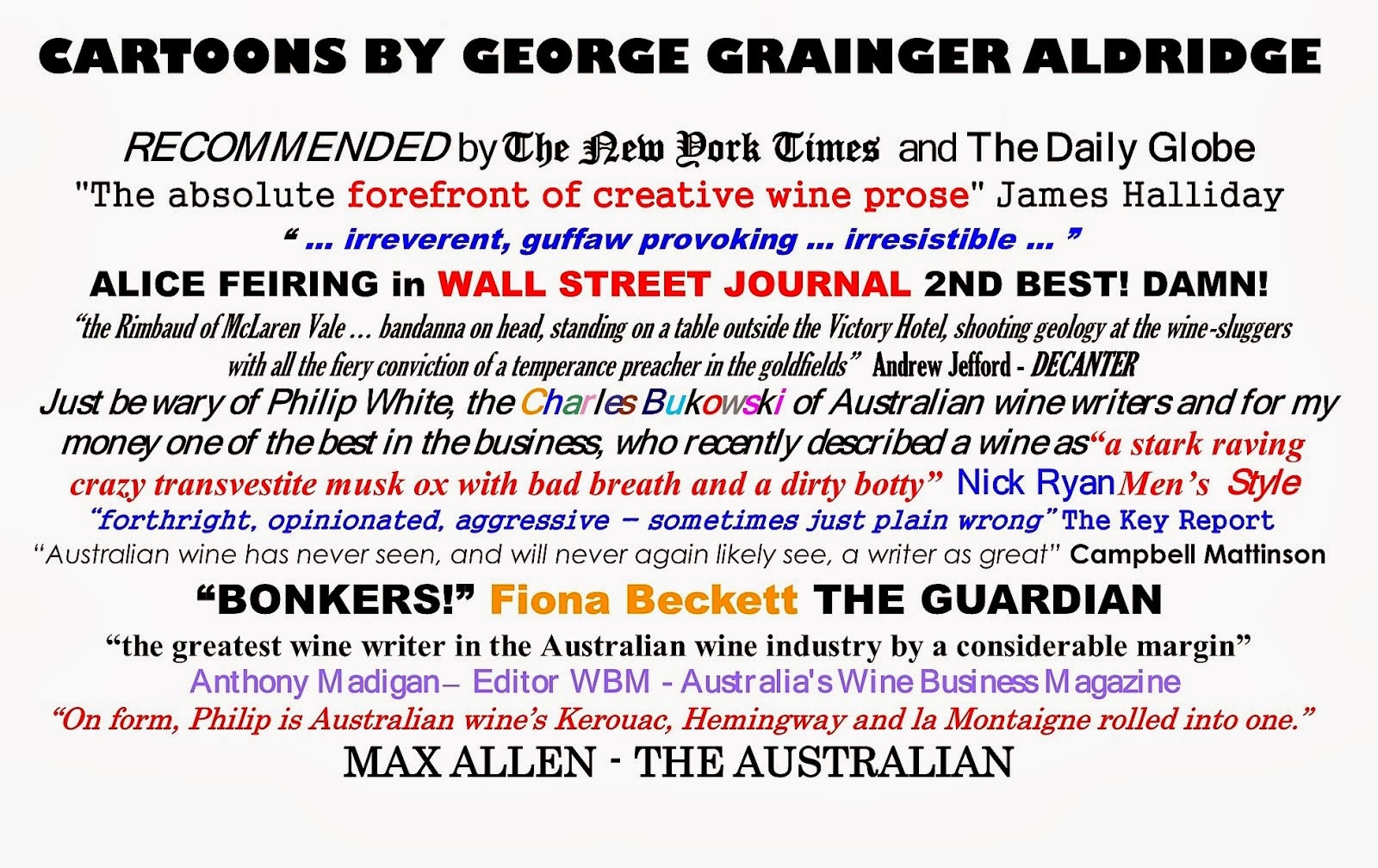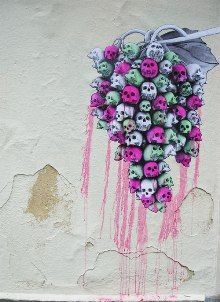by PHILIP WHITE - This was published as "Put A Cork In It" in The Independent Weekly on 29 August 2008
Amorim, the transnational rubber trader which ships more cork bark than anyone else, is smarting. Having lost Australia’s wine market to the superior screw cap - meaning the dominoes of Britain and the USA will also inevitably fall - the fat Portuguese outfit used the Olympics in a desperate attempt to secure the Chinese wine market.
Obsessed with European tradition it can copy, if not simply purchase, the fledgling Chinese wine industry still loves the romance of cork. Exporters of Australian wines must step backwards to enter China: wines sold safely under screwcaps in the rest of the world are not acceptable to the Chinese unless they’re corked. Which is temporary, given China’s incredible advancements in the packaging of other foods and beverages.
China grows more grapes than Australia. If it finds the water to replace our evaporating Chateau Murray-Darling, China will soon be selling cheap wine to Australia. It will then learn the advantages of screw caps, because we won’t want cork unless it’s in platform shoes.
Our heroic Coles is teaching this lesson to the Old World, by purchasing larger volumes of wine provided it’s under screw. The best value sangiovese available here is Vintage Cellars’ “Chalk Board” $15 chianti - the first wine from that huge region to be screwcapped. To reward the producer’s investment in the bottling technology, the opening order was 2000 dozen. Similarly, the first Rioja screwcaps are on the water. This is just the beginning.
Amorim did a sweaty deal with China, through its biggest winery, Great Wall, to ensure all wine served at the Olympics was sealed with “natural cork”. Swarming, no doubt, with all manner of completely natural greeblies, cork being the spongiform bark of the oak, Quercus suber, which structurally resembles a multi-story five-star hotel for microscopic vermin. Unless, of course, the cork is chlorine-bleached, which converts some of those tiny varmints to the dreaded cat-piss/rat’s nest cork taint appropriately called trichloranisole. Amorim consistently claims to have put an end to this infection, but none of the corked wines and whiskies I taste swab clean.
Amorim claims cork is an environmental triumph, preaching on TV ads and the internet that screwcaps threaten the arcadian bliss of the cork groves of the western Mediterranean, and the serene, pristine peasants who tend them. Not to mention the sacred habitat of the blessed lesser-spotted cork dotterel and the freckled pigmy plug sloth.
“One of the world’s greatest examples of sustainable development” Amorim calls the cork racket.... “wine producers looking to reduce their greenhouse gas emissions can address these aspects as a matter of priority”. So screw caps trigger farting? Pull the other one. Given Portugal’s history of specialization in such delicacies as conquering and colonisation, one may wonder whether Amorim envies China’s attitude to human rights and censorship.
The beer industry used the Olympics to stage a collision of the great tectonic plates of suds. Anheuser-Busch is America’s biggest brewer. It makes 48.5 percent of US beer, and owns Budweiser, the world’s biggest-selling beer. Not to mention 50 percent of Grupo Modelo, Mexico's biggest brewer (with Corona, number five globally), and 27 percent of Tsingtao, China’s biggest. Budweiser was a major Olympics sponsor. Like Chinese beer, Bud’s made from rice as much as barley, so it’s lighter and simpler and suited to markets that accept only corked wines or beer you can’t drink without jamming a chunk of lemon down its neck.
On a greenbucks clutch equal to Amorim’s, Budweiser boasts of being the world's largest recycler of aluminum cans. It’s like Banrock Station saving the Murray. I’m green, therefore I deserve.
InBev, the Belgian brewer which set up shop in 1366, is the biggest global brewer, with over 200 brands, like Stella Artois, Beck’s, Leffe, Hoegaarden, Skol, Quilmes, Brahma, Staropramen, Sibirskaya Korona, Chernigivske, Sedrin, Cass, Jupiler and whatnot. It’s now adding Anheuser-Busch to its list. Anheuser-Busch Inbev will own the thirst of China, USA, Russia, Brazil and Germany.
While Beck’s is brewed here by Lion Nathan (whose foray into the wine business is not completely cool), Stella is brewed by Fosters. Like the local Heineken, they’re not European at all. So scour the atlas of the new leviathan’s holdings. Jeez, look Ma, there’s a great big hole here called Australia! Since it was still Interbrew, years ago, InBev has ogled the Fosters apple. So why would you let Fosters make your prime product taste like Melbourne beer when you could simply buy it - Fosters - whip up its dull suds, and ensure your Aussie Stella tastes more like a racy Belgian premium?
If/when Anheuser-Busch Inbev buys Fosters, which it may well do on its way home from China, it will reverse our dumb brewers’ disastrous forays into wine. There’ll be feathers all over the chookhouse when Fosters’ wineries hit the block.
COMMENTS
These comments were left on The Independent Weekly site. You can add comments direct to this blog by hitting the comment button below.
How much this "writer" has received from the screw cap producers? For me this is not an exempt article. Related to the sustainability matters i prefer to "save Miguel". You can "save Miguel" to in http://www.savemiguel.com/ Miguel is cork oak tree, go and see.
Posted by José Lopes on 4/09/2008 12:36:45 AM
(Jose Lopes works for Amorim.)
Brilliant article! Though not the perfect solution, screw caps are the best closure currently available. Patrick Stowe Rimu Grove Winery
Posted by pinotman10 on 4/09/2008 10:03:25 AM
There sure will becasue Constellation's wineries will hit the block first. Maybe the resulting rerating of the production facilities values might make wine profitable again....
Posted by MiketheWineGuy on 4/09/2008 11:29:10 AM
Thanks Jose for that carefully worded and intelligent comment and accusation. Another smart move by Amorim!
Posted by AndrewG on 4/09/2008 12:15:41 PM
I love it when someone like Philip White lays it into these bark floggers - the idea that cork is tradition and that tradition is good; ergo bark is good needs to be laid to rest. Cork bark belongs with other grand traditions like drowning witches, stonings and absolute monarchs. Using cork bark to stopper a bottle is like burning coal to make power, whereas a screwcap is akin to a nice clean and modern solar panel.
Posted by Awinelover on 4/09/2008 12:44:30 PM
Without any reference to AWRI taste trials or other objective measures, this rant completely ignores the Australian invention - Pro Cork. This closure uses the benefits of cork in aging wines and the prophylactic properties of a cellulose barrier to prevent TCA. A great closure and market appreciated all in one. Get up to scratch Mr White!
Posted by Bachanaussie on 4/09/2008 1:13:17 PM
yesterday we opened a bottle of expensive Chardonnay under a Diam cork, a glued together product, it was as badly cork tainted as I have seen - the sooner we get over corks the better. Perhaps we could save Miguel's ancestors by going all the way back to sticking a wax soaked stick in the bottle!
Posted by Gazza in vic on 4/09/2008 5:49:29 PM
Independent weekly? Pfft.. don't kid me!! "Superior screwcaps" yes, that's a very independent statement. "The cork racket"?!?! What is cork some kind of mob deal? Obviously Philip White is well paid by Stelvin and The Independent Weekly is not quite as independent as it thought.
Posted by Luke on 4/09/2008 7:41:18 PM
Regarding the postings on your website commenting an article referring Amorim, we want to immediately clarify that it is not Amorim & Irmaos position that the opinions – albeit misinformed – expressed by the article’s author are anything more than just that. The author is, of course, entitled to his views and to express them freely, and the same applies to any of the postings’ authors. If indeed any of our thousands of employees made a comment on this site, that will be a representation of his or hers private views. It cannot and should not be interpreted as anything resembling the company’s official views. Carlos de Jesus Director, Marketing & Communications Amorim & Irmaos SA
Posted by Carlos de Jesus on 4/09/2008 9:31:33 PM
Jose, what the writer has received from screw cap producers is untainted wine, which is far more environmentally friendly than having to send twice the amount of sample stock.
Posted by Christophe P on 5/09/2008 11:45:11 AM
Its amazing how emotional this debate is! What happened to objective and sound information based on technical facts?! It would be good to see White focus on what really counts - how to ensure the end consumer receives the wine in perfect condition! A good closure solution should provide a consistent and taint free seal and be suitable for the wine style. This includes ensuring oxygen ingress over the closure match the intended sensory profile of the wine. Alternative closures are becoming increasingly popular in todays wine world as they have a lot to offer, but its interesting to note that on a global scale more wines are sealed with synthetic closures than with screw caps.
Posted by Mai Nygaard on 5/09/2008 12:40:14 PM
(Mai Nygaard is Business Development Manager at Nomacorc LLC)
Phil, Get an education before you try to pontificate, maybe even do some research. Your ignorant perception of how TCA is formed is matched by your ignorance of the Chinese wine market. For examples, Great Wall is not the 'biggest Chinese winery'...Changyu is much bigger. Secondly, China only grows more wine grapes than Australia if you include all the table varieties as used for wine, which Chinese winemakers do, so you are only technically correct. And most grapes are grown in places even less suitable than the Hunter Valley, where it regularly pisses down just before vintage, so mouldy grapes are the norm. The only thing they do right is insist on cork, which is environmentally a more responsible closure than screw caps, no matter which way you try to spin it. Screw caps cannot match natural cork for regulated oxygenation during maturation in the bottle, essential to develop complexity in a quality red wine, and unattainable with a metal widget.
Posted by Dingo on 5/09/2008 1:35:02 PM
Phil, TCA is present in water. Drink some Adelaide water and let me know what you think about it. Put the fault in cork is very easy. To be clear, I don't care about the closure. I drink wine because like the experience, the brand the stlye, etc, not because of the closure. Corks have problems, as screwcap have. What is your reaction when you open a bottle of white wine and you feel a strong suphides odour coming out ? Do you complaint about the screwcap ?
Posted by Abagail korouplis on 8/09/2008 1:03:37 PM
The comments from Abagail Korouplis and Gazza from Vic relate to each other in that TCA in wine can have other sources than just the cork. The chlorine component of TCA can come from water or any number of chemical compounds present in the environment which might have somehow got in contact with the wine at any point during the production process from the vineyard on. On at least some occasions cork might be unfairly getting the blame for tainted wine. On wine maturation, wines can mature and develop perfectly well under screwcap, but when a cork does what is is supposed to it can be considered part of the aging process in itself, like a barrel, making a unique contribution to the aged wine.
Posted by TM on 10/09/2008 10:25:03 AM
Dear Phillip White, First, I would like to know how much is the screwcaps lobby paying you. It is not that what you have written is mostly bullshit and non-scientifically based, but the tone in which you write must mean that even being paid, you are powerless against nature. Yes, because there is a war being faught between alternative closures (not substitues) and natural ones. ALWAYS PREFER WHAT IS NATURAL! So, if you defend your positions that fiercly (even though they are false), I wonder how much is your reputation worth in dollars... Unfortunately, you also do not know anything at all about China: the milenar culture which privileges natural material for the food product whose consumption is developing most in the last years is indeed a deep, intelligent one. Even at humannity's highest level like Olympics, this has been recognised. How can you argue with that? Poor you, frustrated writer without any level at all... Thanks God Australia is a proven failure as a wine producer in the World, keep producing your soda kind of drink, and let the world enjoy the real pleasures in life. Ah, and again: get a job and a life, Mr. White!
Posted by The the on 17/09/2008 12:37:40 AM
Anonymous said... If you want to see how desperate the corkistas are becoming with all this environment nonsense, have a look at this "unbiased" BBC report: http://news.bbc.co.uk/2/hi/europe/7623912.stm ...It seems to me the environment would be very well without men going about tearing the bark from trees.













1 comment:
If you want to see how desperate the corkistas are becoming with all this environment nonsense, have a look at this "unbiased" BBC report:
http://news.bbc.co.uk/2/hi/europe/7623912.stm
It seems to me the environment would be very well without men going about tearing the bark from trees.
Post a Comment